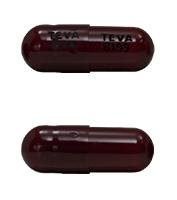Sunitinib Interactions
There are 495 drugs known to interact with sunitinib, along with 13 disease interactions, and 2 alcohol/food interactions. Of the total drug interactions, 94 are major, 399 are moderate, and 2 are minor.
- View all 495 medications that may interact with sunitinib
- View sunitinib alcohol/food interactions (2)
- View sunitinib disease interactions (13)
Most frequently checked interactions
View interaction reports for sunitinib and the medicines listed below.
- Aciphex (rabeprazole)
- Adderall (amphetamine / dextroamphetamine)
- Andembry (garadacimab)
- Aranesp (darbepoetin alfa)
- Atarax (hydroxyzine)
- Demadex (torsemide)
- Ditropan (oxybutynin)
- Efudex (fluorouracil topical)
- Elavil (amitriptyline)
- Eliquis (apixaban)
- Flomax (tamsulosin)
- Fosamax (alendronate)
- Gemzar (gemcitabine)
- Gilotrif (afatinib)
- Gleevec (imatinib)
- Heparin Sodium (heparin)
- Jardiance (empagliflozin)
- Keppra (levetiracetam)
- Lasix (furosemide)
- Levaquin (levofloxacin)
- Metoprolol Succinate ER (metoprolol)
- Nexavar (sorafenib)
- Norco (acetaminophen / hydrocodone)
- Norvasc (amlodipine)
- Retinol (vitamin a topical)
- Rutin (bioflavonoids)
- Sotalol Hydrochloride AF (sotalol)
- Synthroid (levothyroxine)
- Vitamin B12 (cyanocobalamin)
- Vitamin D3 (cholecalciferol)
Sunitinib alcohol/food interactions
There are 2 alcohol/food interactions with sunitinib.
Sunitinib disease interactions
There are 13 disease interactions with sunitinib which include:
- liver disease
- lung toxicity
- adrenal toxicity
- cardiovascular Events
- dermatologic toxicities
- hemorrhagic events
- hypertension
- hypoglycemia
- ONJ
- proteinuria
- QT prolongation
- thyroid abnormality
- Sunitinib – renal disease
More about sunitinib
- sunitinib consumer information
- Compare alternatives
- Pricing & coupons
- Reviews (35)
- Drug images
- Side effects
- Dosage information
- During pregnancy
- Drug class: multikinase inhibitors
- Breastfeeding
- En español
Related treatment guides
Drug Interaction Classification
| Highly clinically significant. Avoid combinations; the risk of the interaction outweighs the benefit. | |
| Moderately clinically significant. Usually avoid combinations; use it only under special circumstances. | |
| Minimally clinically significant. Minimize risk; assess risk and consider an alternative drug, take steps to circumvent the interaction risk and/or institute a monitoring plan. | |
| No interaction information available. |
See also:
Further information
Always consult your healthcare provider to ensure the information displayed on this page applies to your personal circumstances.


